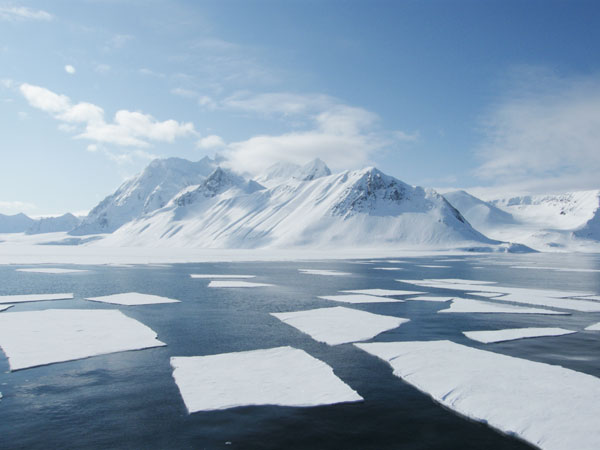Warming to the idea of Arctic exploration
Dragon: A new theater for exploration
Yet for those who live far away from the Arctic region, the impact is also noticeable. According to Rahmstorf, "about one fourth of the observed sea-level rise is believed to be contributed by melting Arctic ice". He also said research has found data evidence to link the shrinking ice to extreme weather events, such as the heat wave in Russia in 2010 and one that occurred in Europe in 2013. "We expect to see more extreme weather patterns in the future," Rahmstorf added.
Promise and paradox
The retreating ice sheet, in the meantime, is like lifting the lid on a treasure box. The Arctic is thought to contain 20 percent of the world's undiscovered hydrocarbon resources, with 84 percent of it believed to be offshore, mostly in waters less than 500 meters deep, according to a Det Norsk Veritas report.
The mining industry expects to extract reserves of rare earth minerals while countries along the Arctic coast are looking forward to tapping into the Arctic tourism business to boost job opportunities. Because there is no scientific argument specifically against developing economic activities in the region, the melting ice seems to have only provided a convenient condition.
But for some industries, hopes for a windfall may not come true. The fishery industry is a case in point. The region offers bountiful sources of food for people across the world - currently about 10 percent of the global fisheries catch comes from Arctic waters. Some wonder, as the region warms, whether the oceans might become more productive.
Yet the latest research showed, counterintuitively, that is not true. One of the main reasons is that warming in the Arctic region enhances ocean stratification, a process that separates seawater into several layers. The more stratified water is, the less the nutrients carried in it mingle and move around, according to research reports.
For the shipping, oil and gas industries, which by far seem to have the most to gain, things are not so easy either. As the ice retreats, new shipping routes are opening. There are currently three main shipping routes across the Arctic region - the North East Passage, the North West Passage and the Central Route.
The melting ice has cleared the North East Passage from the end of July for four months or more, while the Central Route opened from the end of August for one month or more, said Yang Huigen, director-general of the Polar Research Institute of China, the country's leading institute in the Arctic research.
Traversing through the Arctic, shipping companies could cut their transportation time between most European and Asian ports by one-third. This can cut greenhouse emissions as well as fuel costs, which have increased steadily over the past few years. The Arctic route would also free ships from attacks by pirates, which cost shipping companies $7 billion to $12 billion every year in insurance, ransoms and other payments.
Yet, harsh environmental conditions in the region, where vessels and crews are exposed to challenges such as 24-hour nights, extreme low temperatures and the icing up of equipment require extra costs and investments from shipping companies. "There is still a question mark on the so-called Arctic sea route profit (for shipping companies)," said Morten Mejlaender-Larsen, an Arctic expert and discipline leader of Arctic operations and technology at Det Norsk Veritas.
The oil and gas industry has also encountered its share of obstacles. On Feb 27 the oil giant Shell announced that it will give up exploration for oil in Arctic waters this year. Several of the company's facilities and vessels would need repair and were unable to start drilling before the sea freezes over again. The company has so far spent more than $5 billion on the project, according to media reports.
In one of its latest research notes, the Economist Intelligence Unit argued that the Arctic oil projects are not worth the investment - at least for now. The challenging environment will make operational costs very high and increasingly stricter environmental regulations will further push up costs, the report said. In the meantime, "consumption is unlikely to grow and that has price implications, especially in view of increasing supply" and substitutions of alternative energy sources such as bio-fuel and shale oil, according to the report.
Environmental groups, which are lobbying against drilling activities in the region, are not being irrational. Should an offshore accident occur, the climate and weather conditions in the region would hamper effective response and restoration efforts. In the meantime, currently available technologies to clean oil spills from the sea surface would perform poorly in the harsh weather conditions, according to the Det Norsk Veritas report.
Boasting great economic potential, yet threatened by grim environmental consequences, "The Arctic is, simultaneously, a region of great promise and great paradox," said Leiv Lunde, director of the Norway-based Fridtof Nansen Institute.




















